As we hop off the vehicle and walk into the school, twenty-four year old Ajmeer runs up to the door, and pointing to the van mumbles something I can’t quite understand. He has such a broad smile and dance in his eyes that I can’t help but smile back and ask again what he said. And still I can’t understand what he says.
Ajmeen is the newest member of the “boys” at the Colombo Centre for Special Education (CCSE). He has been diagnosed with meningitis, is hyperactive and suffers from seizures from a very young age, but none of that prevents him from being outgoing and friendly, keeping up a running commentary as we tour his school. CCSE is dedicated to providing a safe and positive environment for men with autism, Down’s Syndrome, cerebral palsy and other mental conditions that affect learning. “Most of them are very sheltered in their homes” explains CEO Charika Muttiah, “and this is one place their parents and caretakers are sure they will be loved and not abused”.
Charika’s designation is fancy, but the work she does is far from that. “I have a very small staff here and I tax them to the maximum” she tells me even as she sits down on a piano-stool to look through a sheaf of papers and put her signature on them. They have hit the bottom of their funds. “We are not secure by any means” is the confession Charika makes to me. CCSE is running on the interest off a few investments they’ve made, she explains, and that is stretched thin every month. Most of the parents and legal guardians of the students pay a fee of “whatever they can”, but the CCSE’s main source of funding is private donations, and these are no more all that forthcoming.
Each year, CCSE engages in a number of fundraisers, the highlight of which is the annual sale of work. Through these events they acquire funds to cover their costs and make a little profit, but according to Charika, nothing substantial that can keep the centre running smoothly. “We are such a small group” she tells me almost regretfully, “even to engage in something like a walk is difficult”. It is not that they lack the spirit, but the practical tools to put ideas to action. Many of the CCSE’s students are already a burden to their families, their siblings, their legal guardians who care for them, and the CCSE is their only source of hope and relief. But the organization itself is now approaching not-so-solid ground.
“Security” is a word that keeps returning ominously to our conversation, and I am struck by the irony of how secure the students seem in this place. Some talk and laugh as they are taught basic math, others silently concentrate on their sewing or craft work. There is an air of peace and contentment that pervades the schoolroom. It is unbelievably calming and refreshing.
The school is in fact an airy house at 80/7 on Layards Road, the main hall and verandah of which have been equipped for teaching math, sewing, art, carpentry, woodwork and other simple skills. The hype these days at CCSE is the Art room. One suspects that this is most often the case, but these days more than ever because ‘Expressions 2012’, an exhibition of art and craft by the students at the centre is kicking off at the Lionel Wendt Art Gallery on June 21. The exhibits are set to be revealed at 9:00am by Chief Guest Mrs. Sunethra Bandaranaike at the gallery, which will be open to public until 6:30pm. There are paintings upon paintings in the art room, some done with oil paints, others with acrylic, still more in chalk and pastel, and even a few in mixed media. But the best thing about these paintings is the obvious strength of genuine character that speaks through their forms and colours.
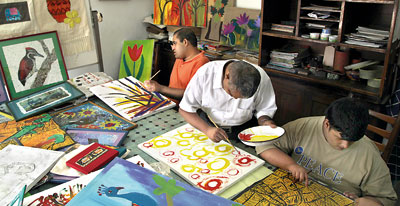
the art room. pic by M. A. Pushpa Kumara.
This is no surprise considering the artists themselves are a lively and interesting bunch. The 28 “boys” as the gentlemen of the institution are called, are between the ages of twenty and sixty-five, and though the CCSE website (www.colombocse.org) reports fifty percent of them lack an understanding of basic instructions, it is impossible not to admire their focus and patience. And even as they are intent on their work, it is impossible not to enjoy their company as they ask simple questions and delight in the most mundane answers. But for many, the true gift of spending time with them is that of pure love and complete forgiveness. “It is amazing” says art teacher Anusha, who has been working at CCSE for roughly a decade now, “you hurt them, they walk the other way and come back the next minute to kiss and hug you”. Her face exudes a brilliance of calm, and the other teachers I meet, Jean, Sister Agatha, Aunty Irene, are all radiant. The love is tangible.
It seems that the beneficiary-benefactor roles are reversed and that it is the teachers and staff that gain from the presence of the students in their lives. Even a brief visit of just over an hour has left me feeling simply content for the rest of the day. Make time for the exhibition on June 21, have a look at the paintings and tonnes of other nifty craft-work and most importantly, meet the artists. Do this not for their sake, but for your own.
Please check out the CCSE website and don’t hesitate to contact them; any form of volunteerism would be welcome, am sure!
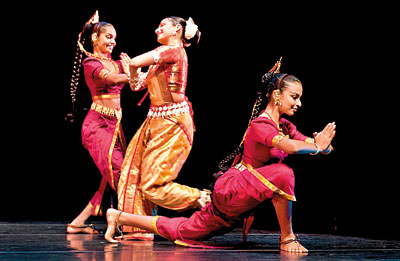




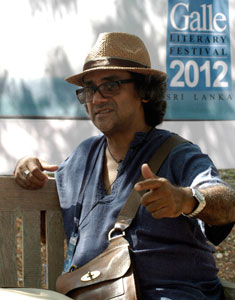
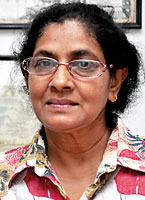


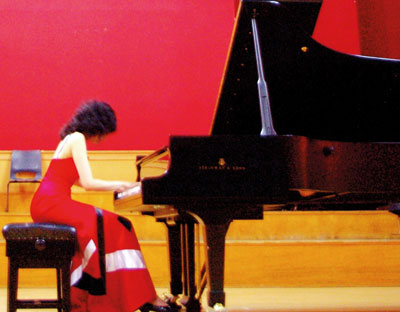


 Many of Peradeniya’s graduates from the 50’s and 60’s look back nostalgically past the serene surroundings and grand structures of the famed campus to the glory of her academic achievements, the brilliance of the intellectuals it produced, and most importantly the simple inspiration of its atmosphere. Those moments of genius, the hours of passionate discourse and the joy of intellectual stimulation seem to have all but disappeared from what used to be the home of the Social Science and Humanities departments of the University of Ceylon, but for two days last week, some of that clarity in the air of its heyday seemed revived. Intellectuals from around the globe gathered on the premises of the Faculty of Arts to mix, mingle, discuss and debate ‘Social Sciences and Humanities in 21st Century Sri Lanka’ at the first International Conference on the Social Sciences and the Humanities (ICSSH).
Many of Peradeniya’s graduates from the 50’s and 60’s look back nostalgically past the serene surroundings and grand structures of the famed campus to the glory of her academic achievements, the brilliance of the intellectuals it produced, and most importantly the simple inspiration of its atmosphere. Those moments of genius, the hours of passionate discourse and the joy of intellectual stimulation seem to have all but disappeared from what used to be the home of the Social Science and Humanities departments of the University of Ceylon, but for two days last week, some of that clarity in the air of its heyday seemed revived. Intellectuals from around the globe gathered on the premises of the Faculty of Arts to mix, mingle, discuss and debate ‘Social Sciences and Humanities in 21st Century Sri Lanka’ at the first International Conference on the Social Sciences and the Humanities (ICSSH). First of these distinguished speakers was President, Pugwash Conferences for Science and World Affairs and Deputy Chairman, Governing Board of Stockholm International Peace Research Institute, Jayantha Dhanapala. His provocative speech on ‘The Formulation of Foreign Policy in Independent Sri Lanka’ placed the topic in the sphere of a “legitimate public concern”, questioning Sri Lanka’s response, to “shirk or rise to the challenge” of fixing its international relations.
First of these distinguished speakers was President, Pugwash Conferences for Science and World Affairs and Deputy Chairman, Governing Board of Stockholm International Peace Research Institute, Jayantha Dhanapala. His provocative speech on ‘The Formulation of Foreign Policy in Independent Sri Lanka’ placed the topic in the sphere of a “legitimate public concern”, questioning Sri Lanka’s response, to “shirk or rise to the challenge” of fixing its international relations. 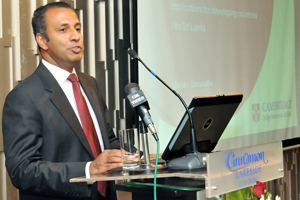 ‘Is there a Future for the Social Sciences and Humanities?’ Gishan Dissanaike, Adam Smith Professor of Corporate Governance at the University of Cambridge asked, in his address. “The harsh reality [is] that no university should have to say their students are unemployable” he said, pointing to the problem of tax-run universities producing a majority of graduates in what are generally considered non-income-generating fields of study. He drove home, with wit and fact, the idea that Sri Lankan departments of Social Sciences and Humanities need to begin focussing on quality over quantity.
‘Is there a Future for the Social Sciences and Humanities?’ Gishan Dissanaike, Adam Smith Professor of Corporate Governance at the University of Cambridge asked, in his address. “The harsh reality [is] that no university should have to say their students are unemployable” he said, pointing to the problem of tax-run universities producing a majority of graduates in what are generally considered non-income-generating fields of study. He drove home, with wit and fact, the idea that Sri Lankan departments of Social Sciences and Humanities need to begin focussing on quality over quantity. d Development’ in order to set some more people at their unease. Tracing the development of Sri Lankan universities and their decline in the recent past to badly formulated education/linguistic/recruitment policies she stressed “the realities have not changed... the quest for applied knowledge undermines the relevance of imagination, thought and reflection”. “Have our failures... impacted to perpetuate intolerance and violence that has been generated on campuses?” she asked of her fellow academics and teachers, “should we transform the guru-gola relationships that we often see today in hierarchical terms of an empowered teacher and a disempowered student, to the ‘Guttila Kavya’ model of a talented student who challenges the teacher?” As one might expect, this was one address that struck home with the attending undergraduates! From tertiary education to the focus on employment-driven degrees, Prof. Goonesekere addressed the issues of “sustainability” in development, and the attitude changes required to bring about such development.
d Development’ in order to set some more people at their unease. Tracing the development of Sri Lankan universities and their decline in the recent past to badly formulated education/linguistic/recruitment policies she stressed “the realities have not changed... the quest for applied knowledge undermines the relevance of imagination, thought and reflection”. “Have our failures... impacted to perpetuate intolerance and violence that has been generated on campuses?” she asked of her fellow academics and teachers, “should we transform the guru-gola relationships that we often see today in hierarchical terms of an empowered teacher and a disempowered student, to the ‘Guttila Kavya’ model of a talented student who challenges the teacher?” As one might expect, this was one address that struck home with the attending undergraduates! From tertiary education to the focus on employment-driven degrees, Prof. Goonesekere addressed the issues of “sustainability” in development, and the attitude changes required to bring about such development.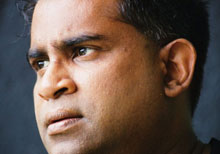 Avid blogger Dr. Pradeep Jeganathan who is more (or less?) significantly Senior Consultant Social Anthropologist for the Consortium of Humanitarian Agencies took a slightly different approach to his keynote address on ‘Politics, Ethics and the Human Sciences’. Wittily he drew on Althusser, Foucalt and enlightenment trends in “scientific inquiry”, in order to bring to light the political implications of disciplinary practice, questioning the construction of the relationship between student and subject. In the light of such heavily philosophical discussion, Prof. Priyan Dias from the Department of Civil Engineering, University of Moratuwa, made during the final panel discussion on ‘Priorities for Higher Education in 21st Century Sri Lanka: Natural Sciences and Technology versus Social Sciences and Humanities’, the important yet seemingly disregarded observation that “the humanist project as we see it, even as I see it, is an elitist one”. And as Nishan de Mel, Executive Director, Verite Research, concluded his take on the panel discussion, “the humanities is not about humanising, but about making sense of the complexities of being human”.
Avid blogger Dr. Pradeep Jeganathan who is more (or less?) significantly Senior Consultant Social Anthropologist for the Consortium of Humanitarian Agencies took a slightly different approach to his keynote address on ‘Politics, Ethics and the Human Sciences’. Wittily he drew on Althusser, Foucalt and enlightenment trends in “scientific inquiry”, in order to bring to light the political implications of disciplinary practice, questioning the construction of the relationship between student and subject. In the light of such heavily philosophical discussion, Prof. Priyan Dias from the Department of Civil Engineering, University of Moratuwa, made during the final panel discussion on ‘Priorities for Higher Education in 21st Century Sri Lanka: Natural Sciences and Technology versus Social Sciences and Humanities’, the important yet seemingly disregarded observation that “the humanist project as we see it, even as I see it, is an elitist one”. And as Nishan de Mel, Executive Director, Verite Research, concluded his take on the panel discussion, “the humanities is not about humanising, but about making sense of the complexities of being human”.